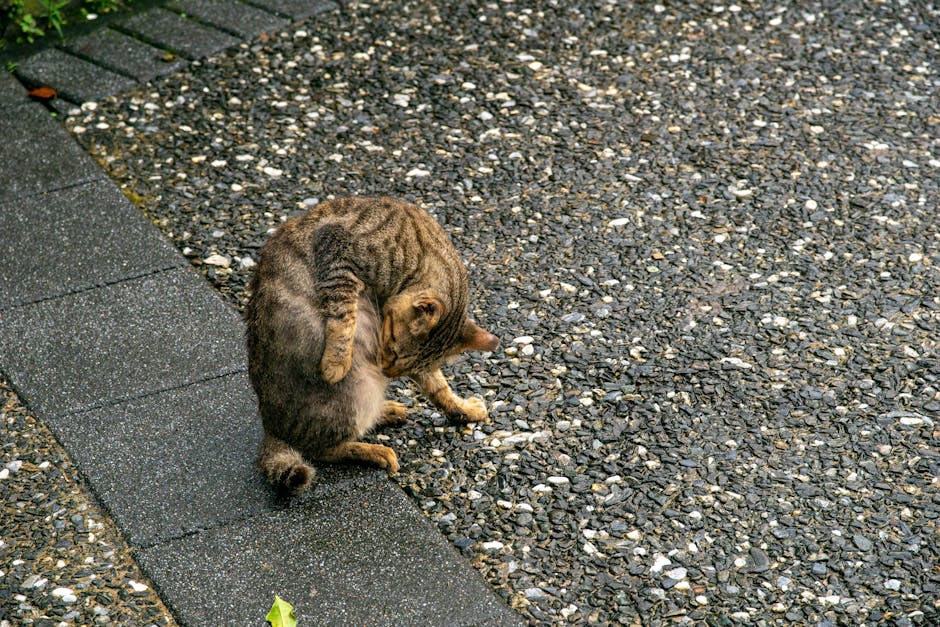Fleas, tiny yet tenacious parasites, pose a significant threat to the well-being of companion animals. While conventional flea treatments are readily available, many pet owners seek alternative, natural solutions. This article delves into the efficacy and potential pitfalls of natural remedies for flea infestations in pets, providing a balanced perspective for informed decision-making.
Understanding the Flea Problem
Fleas are external parasites that feed on the blood of their hosts, including cats and dogs. A flea bite can cause intense itching, leading to skin irritation, secondary infections, and, in some cases, anemia, especially in young or vulnerable animals. Moreover, fleas can serve as vectors for diseases, although this risk is generally lower than other vectors. Identifying a flea infestation promptly and addressing it effectively is crucial for preventing the escalation of these issues.
Evaluating Natural Flea Remedies
Numerous natural products are touted for their flea-repelling properties. However, the scientific evidence supporting their efficacy varies considerably. Some of the most frequently explored natural methods include:
* Essential Oils: A number of essential oils, such as cedarwood, lavender, peppermint, and tea tree oil, are purported to deter fleas. While some studies suggest a repellent effect, the concentration needed to be truly effective can be problematic. A critical caveat is that some essential oils can be toxic to pets if ingested or applied improperly, potentially causing skin irritation, or even more serious reactions. Owners should exercise extreme caution when using essential oils, closely adhering to recommendations and consulting with a veterinarian before application.
* Diatomaceous Earth (DE): This naturally occurring mineral is composed of the fossilized remains of tiny algae. DE can be ingested by fleas, causing them to dehydrate and die, effectively eliminating them. It’s safe for animals if applied correctly. Nevertheless, ingestion by pets may lead to respiratory issues, thus proper application techniques are crucial. Owners should focus on applying DE to the animal’s coat only and avoiding areas where the pet might lick or ingest large quantities.
* Neem Oil: Derived from the neem tree, this oil has shown promising results in repelling fleas. Studies have indicated its ability to kill fleas directly, and it may prove a valuable tool in integrated flea control strategies. This option may pose less risk than some essential oils but should still be used with caution, and a veterinarian’s advice is strongly recommended.
* Herbal Preparations: Several herbal remedies, including extracts from plants like rosemary or garlic, are claimed to have flea-repelling or killing effects. Unfortunately, robust scientific studies validating these claims are limited. The efficacy of many herbal preparations is questionable and may not fully replace conventional flea control measures.
Critical Considerations for Natural Approaches
A crucial point to remember is that the effectiveness of natural flea remedies can vary significantly. Several factors influence their efficacy, including the concentration of the active ingredient, the pet’s individual susceptibility to fleas, and the overall cleanliness of the pet’s environment. Furthermore, many natural remedies need to be applied repeatedly and may require a holistic approach to eliminate a flea infestation entirely.
The Role of Veterinary Guidance
While natural remedies may be appealing, professional veterinary guidance is paramount in managing flea infestations. Veterinarians can accurately diagnose flea infestations, advise on the appropriate application of remedies, and tailor treatment plans to individual pets’ needs, including their health conditions.
Integrating Natural Remedies with Conventional Methods
Many pet owners choose to integrate natural remedies with conventional treatments for a multifaceted approach. This combination often aims to reduce the reliance on potentially harmful chemicals while maintaining effective flea control. However, always prioritize consultation with a veterinarian when combining various strategies to prevent adverse effects or interactions between the treatments.
Beyond Flea Control: Comprehensive Pet Care
Preventing flea infestations starts with proper pet care routines, including regular grooming, and maintaining a clean environment. Ensuring the cleanliness of pet bedding and grooming tools is crucial. Proper attention to diet and overall health also plays an essential role in a pet’s ability to withstand a flea infestation.
Conclusion: A Balanced Perspective
Natural remedies can contribute to an integrated approach to flea control for pets, but their efficacy is not always uniformly proven. Always prioritize consulting a veterinarian. A comprehensive approach, combining professional veterinary guidance with carefully researched natural options (if appropriate), can create a balanced, more effective strategy for managing fleas while safeguarding the well-being of your companion animal.
